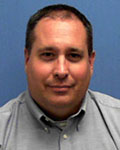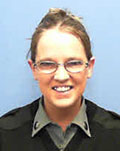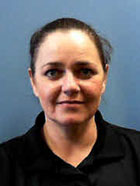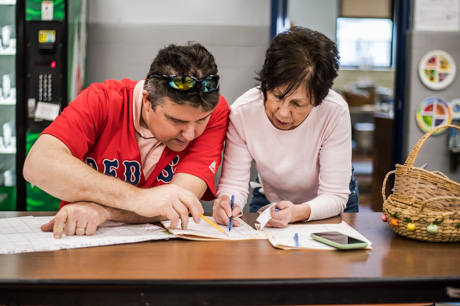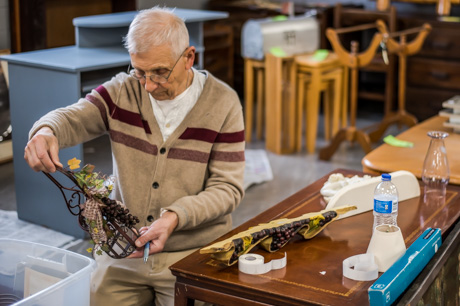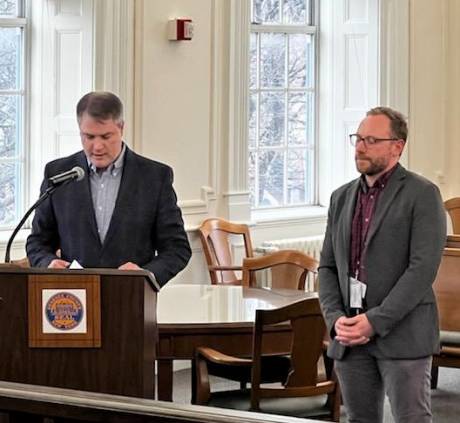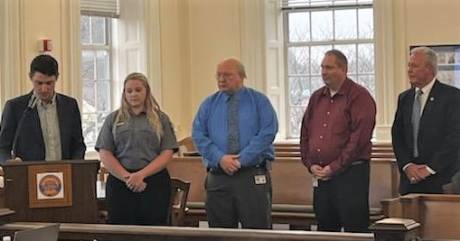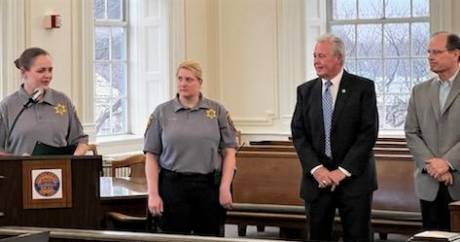Raven M. Spikes, 20, of Batavia, is charged with unlawful dissemination of intimate images. Spikes allegedly posted a video of sexual conduct on social media at 5 p.m., March 20. She was issued an appearance ticket.
James R. Tillery, 49, of Batavia, is charged with criminal mischief 4th. Tillery is accused of damaging property at a restaurant on East Main Street, Batavia, at 8:25 p.m., March 28. He was issued an appearance ticket.
Gary Philip Castronova, Jr., 36, of Dewitt Road, Webster, is charged with criminal possession of a controlled substance 7th, unlicensed driver, aggravated unlicensed driver 3rd., and insufficient turn signal. Castronova was stopped at 8:05 p.m., April 8, on East Main Street, Batavia, by Deputy Ayrton Blankenberg. He was issued an appearance ticket. Also charged, Heather Nicole Holbrook, 36, of East Main Street, Batavia. She is charged with criminal possession of a controlled substance and driving with no seat belt.
Justin Michael Conner, 29, of Franklin Street, Batavia, is charged with DWI, driving with a BAC of .18 or greater, speeding, and failure to yield for an emergency vehicle. Conner was stopped at 12:46 a.m., April 9, on Clinton Street Road, Batavia, by Deputy Morgan Ewert. He was released on appearance tickets.
Carrie L. Hensley, 44, of Batavia, is charged with unauthorized use of a motor vehicle. Hensley allegedly refused to return a vehicle to its owner after borrowing it on April 2. She was issued an appearance ticket.
Jacob L. Hernandez, 27, of Batavia, is charged with obscenity 3rd. Hernandez allegedly sent lewd images of himself to another person at 8:20 a.m., March 31. He was arrested by Batavia PD on the charge after a Sheriff's deputy tried to arrest him on a bench warrant and Hernandez allegedly fled on foot into a wooded area where he was later detained. He then turned himself over to Batavia PD. He was ordered held on bail on the new charge as the charge related to the warrant.
Marie I. Frye, 57, of Batavia, is charged with harassment 2nd and endangering the welfare of a child. Frye is accused of punching another person at 8:03 p.m., March 26, while a child was in the room. Frye was arraigned in City Court and released.
Joseph W. Freeman, 37, of Batavia, is charged with failure to stop at a stop sign and obstructing governmental administration. Freeman allegedly fled from police on his bicycle at 4:44 p.m., April 3, during an attempted traffic stop. He was released on an appearance ticket.
Dean C. Siminski, 32, of Batavia, is charged with criminal contempt 1st. Siminski is accused of contacting a person at 3:20 p.m., March 29, he was ordered by a court not to contact. He was arraigned in City Court and ordered held on $10,000 bail, $20,000 bond, or $40,000 partially secured bond.
Gina M. Olszewski, 29, of Batavia, is charged with DWI. Olszewski was arrested by a Batavia patrol officer following an investigation initiated at 8:28 p.m., March 28, into a possible criminal mischief at a local business. Olszewski was released on traffic tickets.
Nancy L. Lawrence, 69, of Batavia, is charged with soliciting alms on a public street. Lawrence was arrested following a complaint of a person begging for money on Alva Place, Batavia, at 11:30 a.m., March 29. She was issued an appearance ticket.
Matthew W. Kurtz, 52, of Batavia, is charged with criminal contempt 2nd. Kurtz allegedly had a third-party contact a person he was prohibited from contacting by an order of protection. He was issued an appearance ticket.
Jolene Y. Stevens, 33, of resisting arrest and obstructing governmental administration 2nd. Stevens is accused of fighting with police when officers attempted to arrest her ona warrant at 12:03 p.m., March 4. Stevens was arraigned in City Court and released.
Robert J. Ritchey, 58, of Oakfield, is charged with two counts of criminal sex act with a child less than 11 years old 1st, three counts of forcible touching, three counts of sex abuse 1st, and three counts of acting in a manner injurious to a child. Ritchey was charged following an investigation by State Police after a report was made at 1:17 p.m., April 5. He was ordered held in jail. No further information was released.
Lori A. Green, 59, of Batavia, is charged with petit larceny. Green is accused of stealing something in the Town of Batavia at 2:21 p.m., April 9. She was issued an appearance ticket. No further information was released by State Police.
Jared C. Kostrewa, 28, of North Tonawanda, is charged with felony DWI and felony driving with a BAC of.08 or greater. Kostrewa was stopped by State Police at 2:23 a.m., April 8, in the Town of Darien. She was released on an appearance ticket.

